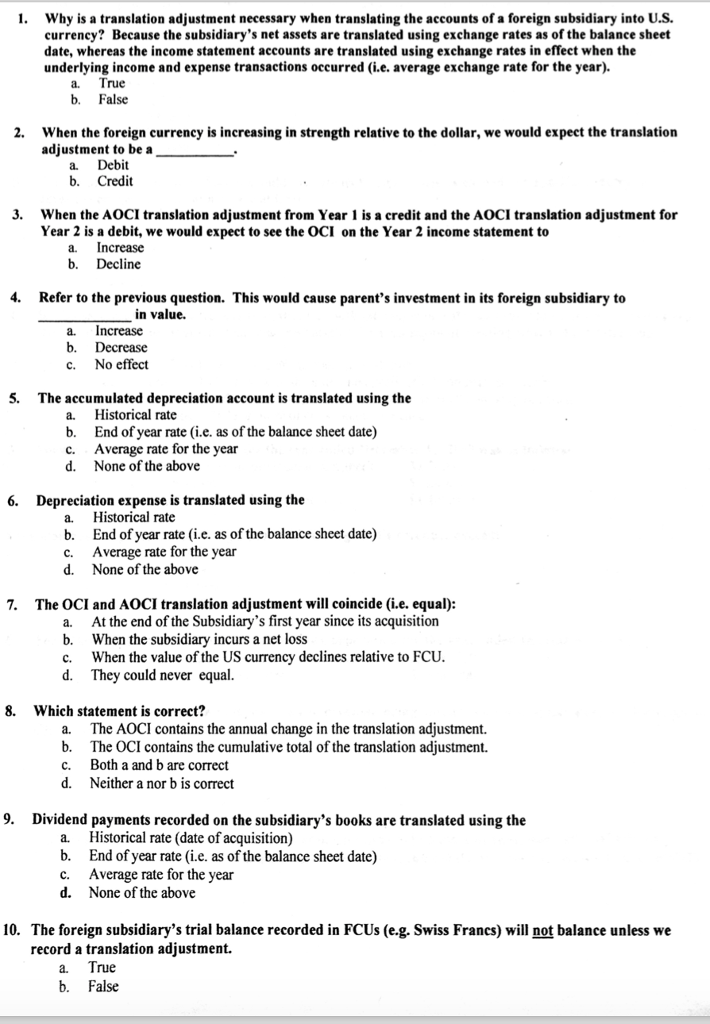
1. Why is a translation adjustment necessary when translating the accounts of a foreign subsidiary into U.S. currency? Because the subsidiary's net assets are translated using exchange rates as of the balance sheet date, whereas the income statement accounts are translated using exchange rates in effect when the underlying income and expense transactions occurred (i.e. average exchange rate for the year) a. True b. False 2. When the foreign currency is increasing in strength relative to the dollar, we would expect the translation adjustment to be a a. Debit b. Credit 3. When the AOCI translation adjustment from Year 1 is a credit and the AOCI translation adjustment for Year 2 is a debit, we would expect to see the OCI on the Year 2 income statement to a. Increase b. Decline 4. Refer to the previous question. This would cause parent's investment in its foreign subsidiary to in value. a Increase b. Decrease c. No effect 5. The accumulated depreciation account is translated using the a. b. c. d. Historical rate End of year rate (i.e. as of the balance sheet date) Average rate for the year None of the above 6. Depreciation expense is translated using the a. Historical rate b. End of year rate (i.e. as of the balance sheet date) c. Average rate for the year d. None of the above 7. The OCI and AOCI translation adjustment will coincide (i.e. equal): a. At the end of the Subsidiary's first year since its acquisition b. When the subsidiary incurs a net loss c. When the value of the US currency declines relative to FCU d. They could never equal 8. Which statement is correct? a. b. c. d. The AOCI contains the annual change in the translation adjustment. The OCI contains the cumulative total of the translation adjustment. Both a and b are correct Neither a nor b is corredt 9. Dividend payments recorded on the subsidiary's books are translated using the Historical rate (date of acquisition) a. b. End of year rate (ie. as of the balance sheet date) c. Average rate for the year d. None of the above 10. The foreign subsidiary's trial balance recorded in FCUs (e.g. Swiss Francs) will not balance unless we record a translation adjustment. a. True b. False







